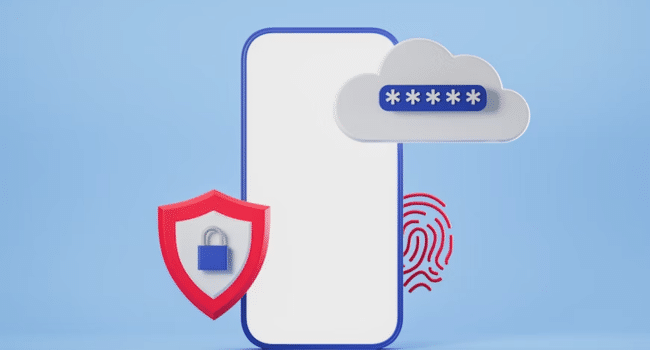Table of Contents
Over the last decade, Indian capital markets have witnessed a massive shift—paper share certificates have given way to digital holdings, and walk-in brokerage offices have been replaced by seamless mobile apps. While convenience has increased manifold, so has the responsibility of brokers to ensure data protection and digital security for their clients.
In this data-driven trading ecosystem, Demat Data Privacy is no longer an afterthought—it’s a key factor influencing which platform an investor or trader chooses to trust. From KYC details and bank account numbers to trading behaviour and portfolio data, a Demat account holds more than just financial value—it holds a complete digital identity.
Why Investor Data Protection Is Now a Business Imperative
Gone are the days when investors only worried about stock tips or trading charges. Today, investors—especially digitally active ones—are far more conscious about how their personal and financial data is handled. With rising incidents of phishing scams, data leaks, and unauthorised access, brokers are under increasing scrutiny to ensure that their platforms are secure, transparent, and compliant with regulatory standards.
The shift in mindset is visible. Investors today ask:
- Is this platform safe for my personal data?
- How is my Demat data stored, encrypted, and protected?
- What kind of authentication and access controls are in place?
In this environment, brokers who prioritize Investor Data Protection are building long-term trust and retaining serious, security-conscious investors.
What Makes a Demat Account Truly Secure?
A secure Demat account is not just about having a password and a firewall. It involves a robust, multi-layered approach that combines technology, policy, and practice.
Here are the essential pillars of a Secure Demat Account:
1. Encryption at Every Level
Whether you’re accessing your account from a mobile app, desktop, or web browser, end-to-end encryption ensures that the data transmitted between the user and the broker’s server cannot be intercepted or read by unauthorised entities.
- TLS/SSL encryption protocols for secure connections
- Encrypted storage of personal and transaction data
- Tokenisation of sensitive data fields
2. Multi-Factor Authentication (MFA)
Passwords alone aren’t enough. Brokers today are implementing advanced MFA protocols such as:
- OTP-based login via registered mobile/email
- Biometric authentication on mobile apps
- Time-sensitive verification tokens
This significantly reduces the risk of unauthorised access.
3. Access Control and Monitoring
Internally, access to sensitive customer data is limited to authorised personnel only. Role-based access control ensures that no one—not even an employee—can access or misuse personal data without a business reason.
Brokers also maintain audit trails and real-time monitoring systems to flag suspicious activity like:
- Unusual login locations
- Repeated failed login attempts
- Sudden data export actions
This way, potential breaches can be stopped before they escalate.
SEBI Guidelines: Raising the Bar for Data Privacy
The Securities and Exchange Board of India (SEBI) has made data privacy and Demat account security a regulatory priority. It mandates strict compliance under norms like:
- Periodic cybersecurity audits
- Strict KYC norms and verification protocols
- Mandated disclosures around data usage and sharing
Compliant brokers often go a step further by aligning with international standards like ISO 27001 for Information Security Management. These checks ensure your data is not only protected but also handled ethically and transparently.
Trust Is Built on Transparency
Data privacy is not just about technology. It’s also about clear communication with clients. Leading brokers make it a point to inform users about:
- What data is collected during registration and usage
- How that data is stored and used internally
- Whether any third-party vendors have access to it
- What measures are in place in case of a breach
This level of transparency is key in building trust with today’s informed investors. Many brokers are now including simplified privacy policies and FAQs within their apps and websites, making it easier for users to understand their rights.
Secure Trading Platforms: Beyond the Demat Account
A truly Secure Trading Platform is about the complete ecosystem—from login to execution to record-keeping. Brokers are now embedding security across every touchpoint:
- Secure order execution gateways with fail-safes for connectivity loss
- Cloud-based backups of transaction records with encrypted access
- Real-time P&L monitoring with alert mechanisms for unauthorised trades
By creating an integrated security framework, brokers ensure that traders can focus on strategy, not worry about leaks or technical vulnerabilities.
What Traders and Investors Can Do
While brokers have a huge role to play in protecting your data, investors must take responsibility for maintaining good data hygiene. Some key steps:
- Never share login credentials or OTPs with anyone
- Use strong, unique passwords and change them periodically
- Avoid using public Wi-Fi for trading activities
- Regularly check statements and alerts for suspicious activity
By staying alert and asking the right questions, investors can ensure that they’re not just investing smartly but securely.
Choosing the Right Broker: Privacy Matters
If you’re actively trading or building a long-term portfolio, it’s essential to choose a broker that takes Demat Account Security seriously. Look for signs like:
- Clear privacy and data handling policies
- Visible security features like 2FA and device verification
- Regular updates around compliance and cybersecurity
In a market full of options, trust is your most valuable asset. Make sure your broker earns it every day.
Data Privacy Is the New Differentiator
In the digital era, security is the new currency of trust. And for brokers, protecting client data isn’t just a legal requirement—it’s a business advantage.
As traders and investors, the choice of where to open a Demat account should factor in not just convenience and fees, but also the platform’s privacy practices and data security protocols.
If you’re looking to open a secure and privacy-focused demat account, always evaluate the platform’s commitment to encryption, transparency, and compliance. Because when it comes to your data, peace of mind should never be optional.
